Efforts to clean up plastic waste along the Mekong river, one of the ten most polluted rivers in the world, are being put into action by the Greater Mekong Subregion countries.
In February, a workshop in Vientiane, Laos was hosted by the Mekong River Commission (MRC) Secretariat and United Nations Environment Program (UNEP) Regional Office for Asia and the Pacific. About 50 government officials and researchers from Cambodia, Laos, Thailand and Vietnam gathered to discuss assessment methodologies to study plastic debris across the Mekong river.
An agreement was made to continue cooperation in order to provide more details and scientific evidence on the current state of plastic pollutants in the region and its threat to the environment and people. The workshop also offered policy recommendations to address the challenges.
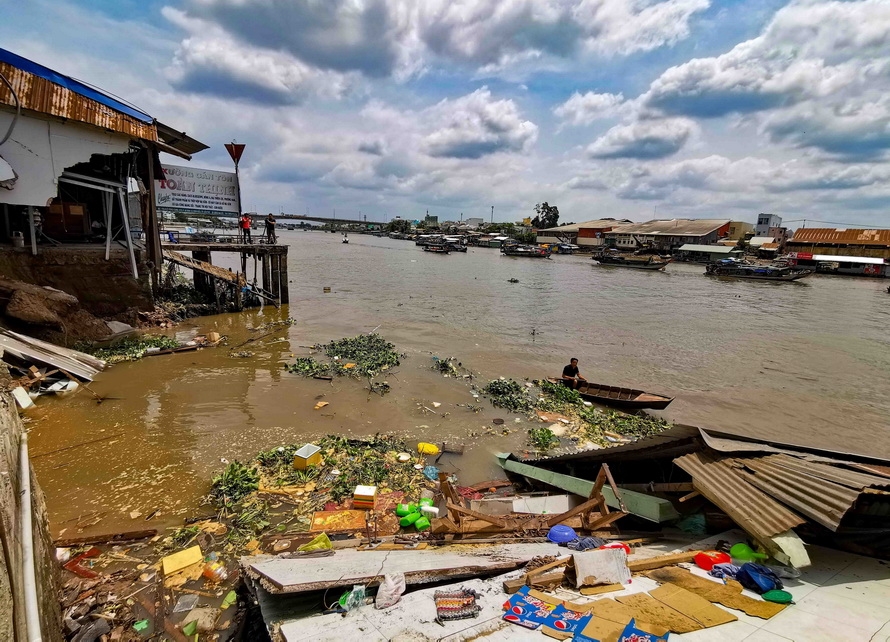
Trash in the Cai Rang floating market, Ninh Kieu district, Can Tho. Photo: Thanh Liem / VNA
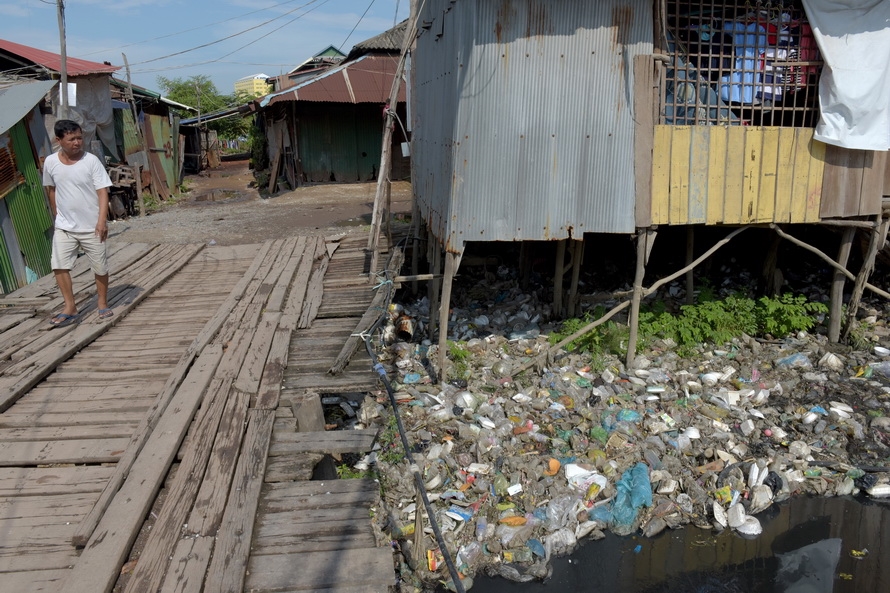
A canal in Phnom Penh, Cambodia is choked with rubbish. Photo: AFP / VNA
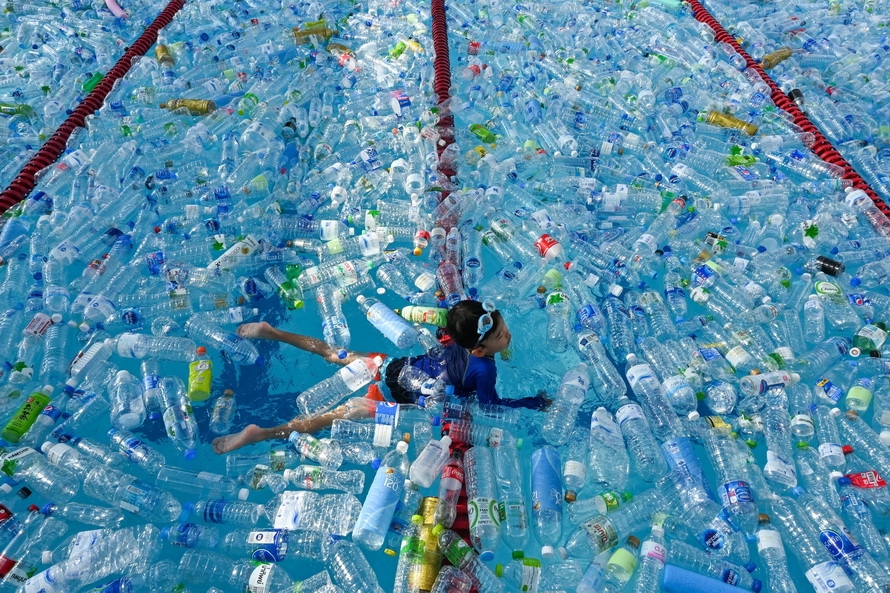
A participant is swimming in a pool filled with plastic bottles
during an awareness campaign to mark World Oceans Day in Bangkok, Thailand. Photo: AFP / VNA
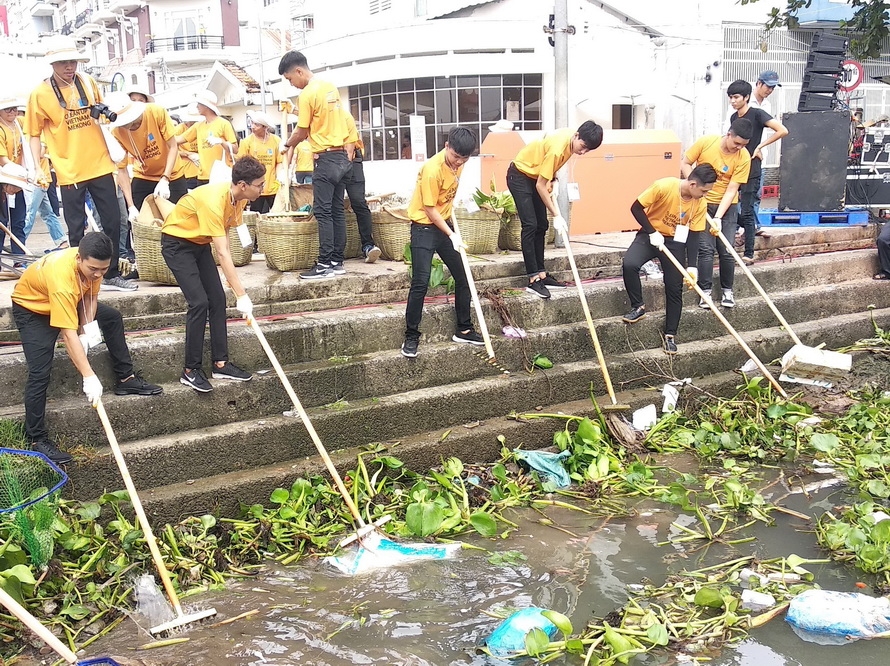
Volunteers are collecting trash along the river in Vinh Long province under the "clean up Mekong" campaign. Photo: Le Thuy Hang / VNA
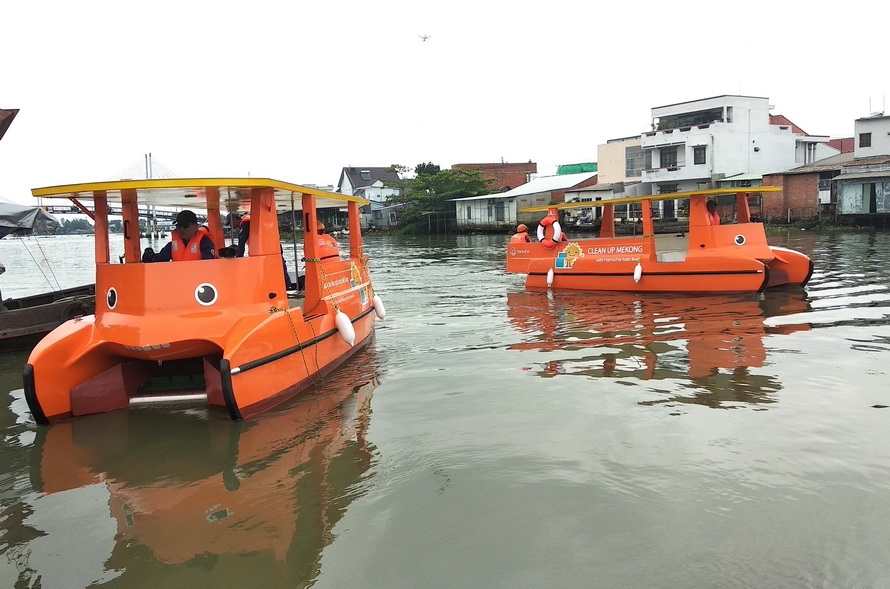 Hanwha Group donated two solar-powered boats worth 2.5 billion dong to Vinh Long province. Photo: Le Thuy Hang / VNA Hanwha Group donated two solar-powered boats worth 2.5 billion dong to Vinh Long province. Photo: Le Thuy Hang / VNA |
According to a study in the Environmental Science & Technology journal in November 2017, the Mekong was one of ten rivers responsible for 80-95% of plastic trash that ends up in oceans. In addition, the research of Dr. Christian Schmidt, a hydrogeologist at the Helmholtz Centre for Environmental Research (Germany), shows that the Mekong river is one of the ten most polluted rivers in the world.
Concerning plastic pollution in the Mekong, Caitlin Wiesen, United Nations Development Program (UNDP) Resident Representative in Vietnam, called on governments, businesses and local people in the region to take action. The practical measures are to say no to disposable plastic products; use environmentally friendly products; collect and treat plastic waste properly.
Since the end of 2019, the government of Vietnam with local people in the Mekong Delta has taken specific, drastic actions. Recently, the Vietnam Environment Administration has cooperated with Korean Hanwha Group to launch the "clean up Mekong" campaign. For the campaign, Hanwha Group donated two solar-powered boats to Vinh Long Province. According to Sun-Mok Choi, President and Head of the Hanwha Communications Committee, Hanwha will expand the campaign to other provinces in Vietnam if the trial is successful.
Additionally, Can Tho has partnered with The Netherlands’ Ocean Cleanup organization (TOC) to set up a floating automatic trash-collecting system along the river. Developed by the TOC, the automatic river garbage collection boat uses solar energy, connected to phones for users to know the amount of garbage collected. TOC aims to collect about 90% of the waste along the river. If it proves successful, TOC will install hundreds of such automatic trash-collecting systems in rivers around the world.
.Story: Phong Thu - Photos: VNA